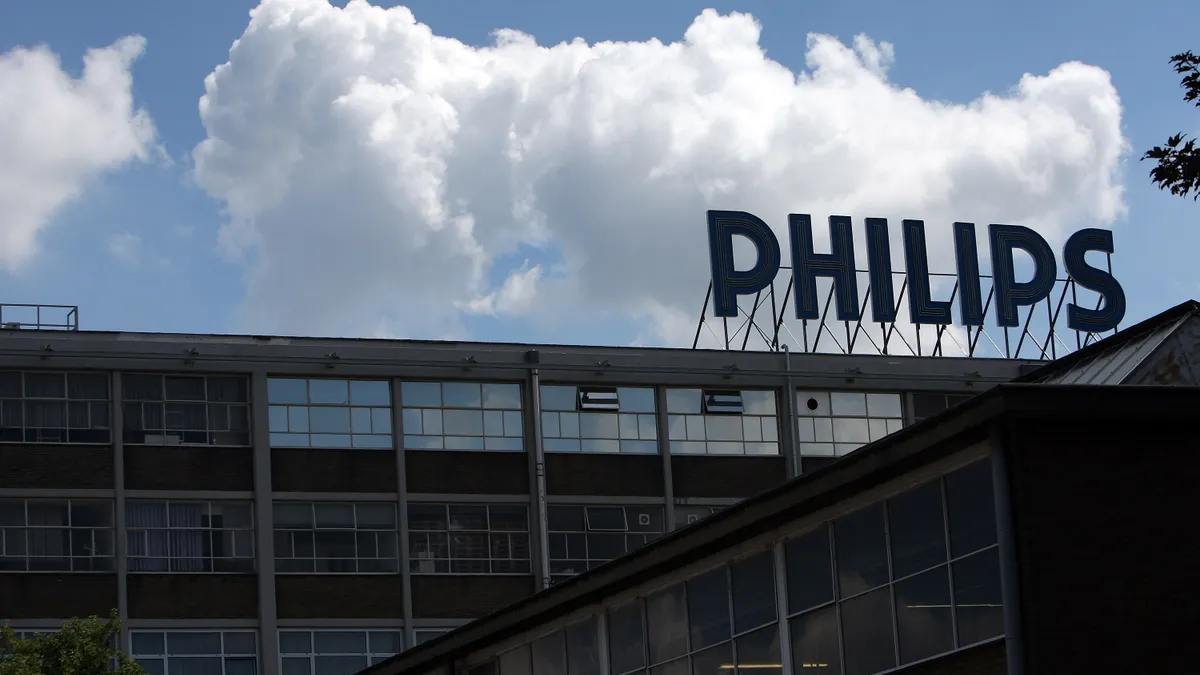Dive Brief:
- Current Philips executives are waiving their bonuses for 2022 in light of the medtech firm’s performance last year and “the sentiment and negative experience of the company’s shareholders.”
- The executives are waiving €425,951 ($453,878) from across two incentive schemes, although former CEO Frans van Houten kept a €208,370 bonus. Philips’ market value fell by about $20 billion last year.
- News of the waived incentives coincided with a Food and Drug Administration notice about the recall of some reworked ventilators that Philips initiated late last year. The FDA posted Class I recall notices about the devices last month.
Dive Insight:
Philips faced a shareholder backlash at last year’s annual general meeting, when it lost a vote on its 2021 remuneration report by 79% to 21%. While the remuneration vote was advisory, Feike Sijbesma, chairman of the supervisory board of Philips, vowed to “take the feedback seriously” and “continue constructive dialogue and consultation with our shareholders.”
Now, Philips’ top executives have agreed to waive their annual incentive and long-term incentive payments for 2022. Current CEO Roy Jakobs is waiving a €35,881 annual incentive payment for his work as chief business leader of connected care from the start of 2022 through Oct. 14.
The decision to waive incentives caused the pay packages of other executives to fall. Minus the incentives, the total remuneration of Philips CFO Abhijit Bhattacharya dropped 29% compared to 2021. Marnix van Ginneken, executive vice president and legal officer, received a similar cut, although the total pay packages of both executives still exceeded €1.4 million.
Philips’ system for weighting bonuses means the executives are giving up less than would have been the case in earlier years. Jakobs, Bhattacharya and van Ginneken achieved between 13% and 17% of their annual incentive target last year. In 2021, the range for the three top executives was 23% to 31%.
The bonus moves follow a year in which Philips failed to recover from the sleep and respiratory device recall that began in 2021. The latest setback, details of which have emerged in recent months, relates to faults with the adhesive used to install the silicone sound abatement foam on some ventilators and the presence of residual PE‐PUR foam in other devices.
“These issues relate to approximately 20,000 repaired Trilogy 100/200 ventilators, of which more than half are in the U.S.,” Steve Klink, a company spokesperson, said in an emailed statement. “The repair of Trilogy 100/200 ventilators remains paused as Philips Respironics is developing a permanent corrective action for these two issues in coordination with the relevant regulatory authorities. Once available, Philips Respironics will contact customers to begin the correction process.”










